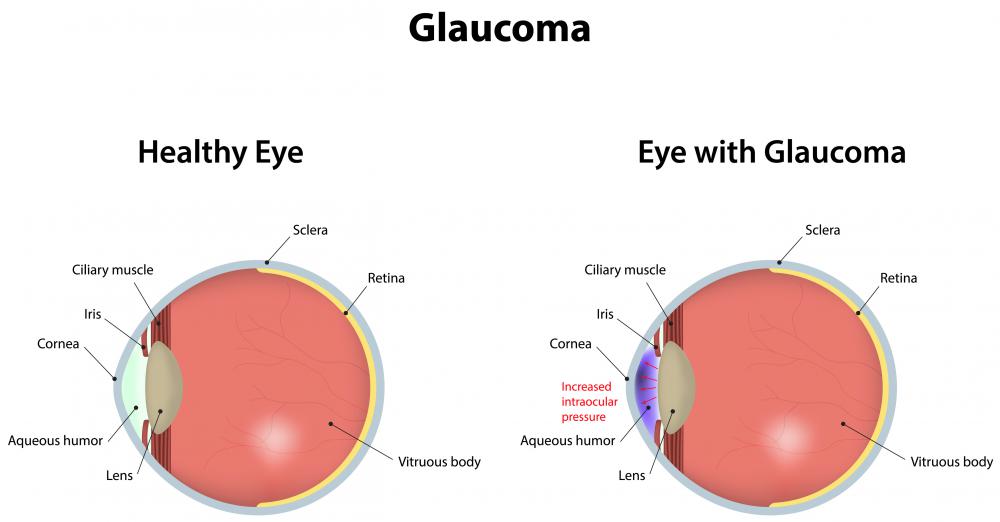At TheHealthBoard, we're committed to delivering accurate, trustworthy information. Our expert-authored content is rigorously fact-checked and sourced from credible authorities. Discover how we uphold the highest standards in providing you with reliable knowledge.
What Is Fuchs' Heterochromic Iridocyclitis?
Fuchs' heterochromic iridocyclitis (FHI) is also known as Fuchs' heterochromic uveitis (FHU) or Fuchs' heterochromic cyclitis (FHC). It is a chronic eye condition that typically occurs in only one eye, although it can affect both. With this condition, a part of the eye called the uvea regularly becomes inflamed.
Diagnosing Fuchs' heterochromic iridocyclitis is not done through laboratory testing. Lab work may be done to rule out other forms of uveitis, but generally doctors must rely on observation and examination, as the signs will usually be apparent. Additionally, a thinning or flattening of the iris may be visible. A patient may also have inflammatory cells, called keratic precipitates, on the back of the cornea.

There are three predispositions doctors look for when considering a patient's odds of developing Fuchs' heterochromic iridocyclitis. Heterochromia, which is when a person has two different colored irises, is the primary factor. A likelihood of developing glaucoma or cataracts is another predisposition. The third factor is posterior vitreous detachment, which is when the vitreous section of the eye pulls away from the retina. Doctors call these three dispositions the trifecta and when all three are present and combined with chronic inflammation, it is likely that the result is FHI.

Although the presence of the three predisposition factors almost always precedes the development of Fuchs’ heterochromic iridocyclitis, it is not uncommon for patients to have a lack of symptoms for several years. When examined, patients' eyes show small amounts of inflammation. Often, however, chronic inflammation is not yet evident. Redness and pain may not be noticed either. Symptoms that are most noticeable are decreased vision and floating spots.

After a diagnosis of Fuchs' heterochromic iridocyclitis, patients may notice fluctuations in the condition and the symptoms that occur. Symptoms can be scattered and may not include all the possible symptoms in each flare-up. They may also flare up and be mild or worsen each time. Most commonly, vitreous detachment worsens and causes more floaters to appear.

The presence of glaucoma or cataracts requires medical treatment. Glaucoma is treated with eye drops if it is detected during early development. Severe cases require surgical removal to avoid damage to the optic nerve. Cataracts are surgically removed when they interfere in a patient’s daily life.
Surgical treatment, other than what is necessary for removal of glaucoma or cataracts, is not usually possible. Treatment for Fuchs' heterochromic iridocyclitis includes topical corticosteroids to help reduce inflammation during a flare-up of symptoms. Topical nonsteroidal anti-inflammatory drugs (NSAIDs) can be used to manage symptoms on a long-term basis. Low-grade inflammation does not generally require treatment. If pain accompanies inflammation, doctors often recommend using over-the-counter pain relievers and either warm or cold compresses over the affected eye.
AS FEATURED ON:
AS FEATURED ON:

















Discuss this Article
Post your comments